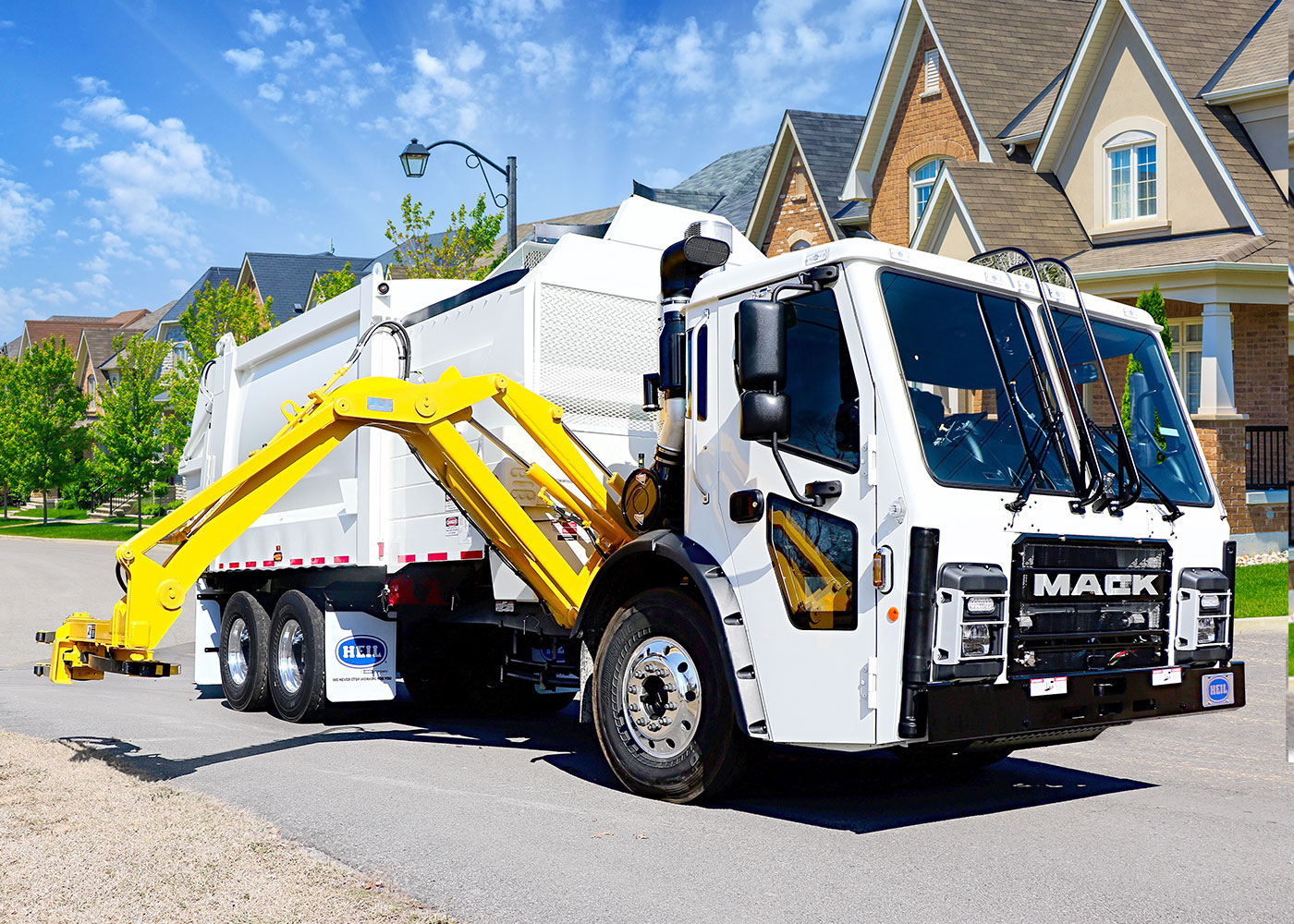Recycling Trucks For Sale: A Comprehensive Buyer’s Guide pickup.truckstrend.com
In an era defined by increasing environmental consciousness and the urgent need for sustainable practices, the role of recycling has never been more critical. At the heart of any effective recycling program lies a fleet of specialized vehicles: the recycling truck. More than just a means of transport, these sophisticated machines are the workhorses that bridge the gap between conscientious citizens and the facilities that process recyclable materials, transforming waste into valuable resources.
For municipalities, private waste management companies, and even large commercial entities, acquiring the right recycling truck is a pivotal business decision. It impacts operational efficiency, cost-effectiveness, safety, and ultimately, the success of their sustainability initiatives. This comprehensive guide, "Recycling Trucks For Sale," aims to demystify the process of purchasing these essential vehicles, offering insights into their types, key considerations, the buying process, and practical advice to help you make an informed investment.
Recycling Trucks For Sale: A Comprehensive Buyer’s Guide
Understanding the Anatomy of a Recycling Truck
Before diving into the market, it’s crucial to understand the fundamental components that make up a recycling truck. These vehicles are purpose-built to handle various types of recyclable materials efficiently and safely.
- Chassis: The foundation of the truck, typically a heavy-duty commercial truck chassis designed to withstand significant weight and rigorous daily operation. Manufacturers like Peterbilt, Freightliner, Mack, and Kenworth are common suppliers.
- Compaction Mechanism/Body: This is the specialized rear, side, or front-loading body that collects and often compacts materials. It’s designed for specific collection methods and material types. The body itself is typically made of high-strength steel or aluminum, with steel offering superior durability and aluminum providing weight savings and corrosion resistance.
- Hopper: The opening where materials are loaded. Its design varies significantly based on the truck type (e.g., large open hopper for rear-loaders, smaller bins for side-loaders).
- Packing Plate/Ram: Within the hopper, a hydraulic plate pushes and compacts the collected materials into the main body, maximizing payload and reducing the number of trips.
- Lifting Mechanisms: Depending on the truck type, these include automated or semi-automated cart tippers for residential bins, commercial lifters for larger dumpsters, or even grapple attachments for bulkier items.
- Hydraulic System: The powerhouse behind the compaction and lifting mechanisms, consisting of pumps, cylinders, and fluid reservoirs. The health of this system is paramount to the truck’s operation.
- Safety Features: Modern trucks incorporate advanced safety features such as backup cameras, side-view cameras, proximity sensors, emergency stop buttons, anti-rollaway systems, and bright LED lighting for visibility.
- Engine and Drivetrain: Typically powerful diesel engines, though Compressed Natural Gas (CNG) and electric options are gaining traction. The transmission is usually an automatic, designed for frequent stop-and-go operations.

Types of Recycling Trucks Available for Sale

The diverse world of recycling necessitates a variety of truck types, each suited for different collection strategies and material streams. Understanding these distinctions is key to selecting the right vehicle for your needs.
- Rear-Load Recycling Trucks: These are perhaps the most recognizable. Waste is manually or semi-automatically loaded into a hopper at the rear, then compacted.
- Pros: Highly versatile for both residential and commercial routes, can handle a wide range of materials, and are generally simpler to operate and maintain. Often preferred for source-separated collection where a crew sorts materials at the curb.
- Cons: Requires a crew of one to three people, which increases labor costs and potential for injuries. Less efficient for high-density residential areas compared to automated options.

- Side-Load Recycling Trucks: These trucks load from the side, with options for manual or automated collection arms.
- Automated Side-Loaders (ASLs): Equipped with a robotic arm operated by a single driver from inside the cab, picking up specialized carts.
- Pros: Highly efficient for residential routes, significantly reduces labor costs, enhances safety by keeping operators off the street, and speeds up collection.
- Cons: Higher initial purchase cost, requires specific cart types, less flexible for commercial bins or non-standard items, and can be challenging in tight spaces.
- Manual Side-Loaders: Require an operator to walk alongside the truck, manually emptying bins into a side-mounted hopper.
- Pros: Good for areas where automated arms can’t reach, or for multi-family dwellings with smaller bins.
- Cons: Labor-intensive and slower than automated options.
- Automated Side-Loaders (ASLs): Equipped with a robotic arm operated by a single driver from inside the cab, picking up specialized carts.
- Front-Load Recycling Trucks: Primarily used for commercial and industrial waste collection, these trucks lift large dumpsters over the cab and empty them into the front-mounted hopper.
- Pros: Ideal for high-volume commercial accounts, efficient for large-scale operations.
- Cons: Less common for residential recycling unless dedicated to a specific type of material (e.g., cardboard only).
- Multi-Compartment/Split-Body Trucks: Designed with two or more separate compartments within the body, allowing for the collection of different recyclable materials (e.g., paper and plastics) in a single pass.
- Pros: Maximizes efficiency by reducing the number of collection passes, simplifies source separation, and can reduce post-collection sorting efforts.
- Cons: More complex design, higher initial cost, and potentially reduced individual compartment capacity.
- Roll-Off Trucks: While not compacting recycling trucks, roll-off trucks are essential for transporting large recycling containers (e.g., for construction and demolition waste, large industrial sites, or specialized material collection).
- Pros: Extremely versatile for large volumes and various material types.
- Cons: Does not compact, requiring more frequent trips for lightweight materials.
- Electric and Hybrid Recycling Trucks: An emerging category focusing on sustainability and reduced emissions.
- Pros: Zero or low emissions, quieter operation, potential for lower long-term fuel and maintenance costs (fewer moving parts in electric drivetrains).
- Cons: Higher initial purchase price, limited range (for full electric), and requires charging infrastructure.
Key Considerations When Buying a Recycling Truck
The decision to purchase a recycling truck involves a significant investment. Careful consideration of several factors will ensure you acquire a vehicle that perfectly aligns with your operational needs and budget.
- New vs. Used:
- New: Offers the latest technology, full manufacturer warranty, customizable specifications, and guaranteed reliability. However, the upfront cost is significantly higher.
- Used: Presents a more budget-friendly option and quicker availability. The key is thorough inspection and understanding its history. While cheaper, potential for unforeseen maintenance issues exists.
- Capacity and Route Needs: Evaluate your daily tonnage, the types of materials collected, and the frequency of pickups. Do you need a 20, 25, or 32-cubic yard capacity? Consider the average weight and volume of materials on your routes.
- Fuel Type and Environmental Impact:
- Diesel: Still the most common, offering robust power and widely available fueling infrastructure. Modern diesels are cleaner but still produce emissions.
- Compressed Natural Gas (CNG): A cleaner alternative with lower fuel costs in many regions, but requires specific fueling infrastructure and has a slightly higher upfront cost.
- Electric: The greenest option, producing zero tailpipe emissions and significantly quieter. The initial investment is highest, and range anxiety/charging infrastructure are considerations.
- Maintenance and Parts Availability: Research the commonality of the truck’s components and the availability of parts. Opting for well-known brands often means easier access to service networks and spare parts, reducing downtime.
- Compliance and Regulations: Be aware of local, state, and federal regulations regarding vehicle emissions, weight limits, and safety standards. Ensure the truck you choose meets all necessary compliance requirements.
- Budget and Total Cost of Ownership (TCO): Look beyond the sticker price. Factor in fuel costs, maintenance, insurance, financing interest, and potential resale value. A cheaper used truck might have higher long-term operating costs.
- Body Material and Durability: Steel bodies are robust and durable, ideal for heavy-duty use. Hardox steel offers superior abrasion resistance. Aluminum bodies are lighter, improving fuel efficiency and payload, and resist corrosion, but may be more susceptible to impact damage.
- Safety Features: Prioritize trucks with comprehensive safety features, including multiple cameras, sensors, automatic braking systems, and ergonomic controls to protect operators and the public.
Where to Find Recycling Trucks For Sale
The market for recycling trucks is diverse, offering various avenues for purchase depending on your budget, urgency, and preference for new or used equipment.
- Authorized Dealerships: The primary source for new trucks and often for certified used models. Dealerships offer warranties, financing options, and reliable after-sales service. They can also custom-order trucks to your exact specifications.
- Online Marketplaces: Websites like TruckPaper.com, CommercialTruckTrader.com, MyLittleSalesman.com, and specialized waste equipment portals (e.g., Waste & Recycling Equipment) feature extensive listings from dealers and private sellers across the country. This offers a wide selection and competitive pricing.
- Auctions: Public and online auctions (e.g., Ritchie Bros. Auctioneers, IronPlanet) can be excellent places to find deals, especially on used equipment. However, trucks are typically sold "as-is," requiring buyers to be diligent in their pre-purchase inspections.
- Direct from Municipalities or Private Fleets: Some organizations sell off their older equipment directly. These trucks often have detailed maintenance records and can be well-maintained, though they may have high mileage.
- Equipment Brokers: Brokers specialize in connecting buyers with sellers, often having access to off-market listings or niche equipment. They can streamline the search process but typically charge a commission.
The Buying Process: A Step-by-Step Guide
Once you’ve identified your needs and where to look, follow these steps to secure your recycling truck:
- Define Your Exact Specifications: Based on your route analysis and budget, create a detailed list of required features, capacity, fuel type, and preferred manufacturers.
- Research and Shortlist: Browse listings from various sources. Compare models, prices, and features. Read reviews and seek recommendations.
- Contact Sellers and Gather Information: For shortlisted trucks, request detailed specifications, maintenance records, service history, and any available inspection reports.
- Schedule a Thorough Inspection (Crucial for Used Trucks):
- Professional Mechanic: Hire an independent mechanic specializing in heavy equipment to perform a pre-purchase inspection. They can identify potential issues with the engine, transmission, hydraulic system, frame, and body.
- Test Drive: Operate the truck under conditions similar to your intended use. Test the compaction mechanism, lifting arms, and all safety features.
- Visual Inspection: Look for signs of excessive wear, rust, leaks, frame damage, or poorly executed repairs.
- Review Documentation: Verify the title, lien status, and ensure all maintenance records are complete and consistent.
- Negotiate the Price: Be prepared to negotiate. For used trucks, leverage any identified issues during inspection to secure a better price. Consider the total cost, including potential repairs, transportation, and registration.
- Secure Financing: Explore loan options from banks, credit unions, or equipment finance companies. Leasing is another option that can offer lower monthly payments and flexibility.
- Finalize the Purchase and Logistics: Once terms are agreed upon, complete the paperwork. Arrange for transportation of the truck to your facility and ensure proper insurance coverage is in place.
Challenges and Solutions
Purchasing and operating recycling trucks can come with its unique set of challenges. Being aware of these and having solutions in mind can save significant headaches.
- High Initial Cost:
- Solution: Explore financing options like loans or leases. Consider purchasing a well-maintained used truck from a reputable seller or certified dealer.
- Complex Maintenance:
- Solution: Establish a robust preventive maintenance schedule. Either develop an in-house team with specialized training for hydraulic and compaction systems or partner with a reliable heavy equipment service provider.
- Fuel Price Volatility:
- Solution: Investigate CNG or electric trucks if infrastructure allows, as their fuel costs can be more stable. Implement fuel efficiency training for drivers.
- Regulatory Compliance:
- Solution: Stay updated on all local, state, and federal regulations regarding vehicle emissions, noise, and weight. Invest in compliant vehicles and ensure proper permitting.
- Finding Skilled Operators:
- Solution: Invest in comprehensive training programs for drivers, focusing on safe operation, equipment maintenance, and route efficiency. Look for trucks with user-friendly controls and advanced safety features.
Estimated Recycling Truck Price Table
Please note: These are estimated price ranges as of late 2023/early 2024 and can vary significantly based on manufacturer, specific features, engine type, mileage, condition, and market demand. Always get current quotes for precise pricing.
| Truck Type | Condition | Estimated Price Range (USD) | Typical Capacity (Cubic Yards) | Key Features/Notes |
|---|---|---|---|---|
| Rear-Loader | New | $250,000 – $450,000+ | 20 – 32 | Versatile, manual/semi-auto loading, robust for mixed routes. |
| Used (Good) | $80,000 – $250,000 | 20 – 32 | Dependable, good for general collection, multi-person crew. | |
| Used (Fair) | $30,000 – $80,000 | 20 – 32 | Older models, potential for more maintenance, entry-level. | |
| Automated Side-Loader | New | $350,000 – $600,000+ | 20 – 32 | Single-operator efficiency, robotic arm, residential focus. |
| Used (Good) | $150,000 – $350,000 | 20 – 32 | High efficiency, requires specific cart types. | |
| Used (Fair) | $60,000 – $150,000 | 20 – 32 | Cost-effective for high-volume residential routes. | |
| Multi-Compartment | New | $300,000 – $550,000+ | 25 – 40 (total) | Separates materials at source, reduces sorting needs. |
| Used (Good) | $120,000 – $300,000 | 25 – 40 (total) | Ideal for dual-stream collection, more complex hydraulics. | |
| Used (Fair) | $50,000 – $120,000 | 25 – 40 (total) | Specialized use, check compartment integrity. | |
| Front-Loader | New | $300,000 – $500,000+ | 30 – 40 | Commercial/industrial focus, large capacity for dumpsters. |
| Used (Good) | $100,000 – $300,000 | 30 – 40 | High payload, efficient for large accounts. | |
| Used (Fair) | $40,000 – $100,000 | 30 – 40 | Check lifting mechanism wear. | |
| Electric/Hybrid | New | $500,000 – $800,000+ | 25 – 32 | Zero/low emissions, quiet, higher upfront cost. |
| Used (Limited) | $200,000 – $450,000 | 25 – 32 | Emerging market, less availability, check battery life. |
Frequently Asked Questions (FAQ) about Recycling Trucks
Q1: What is the main difference between a recycling truck and a regular garbage truck?
A1: While both collect waste, recycling trucks are often designed with features specific to handling recyclables. This can include multi-compartment bodies for source separation, specialized lifting mechanisms for recycling bins, or lighter compaction for fragile materials like glass. Garbage trucks typically focus on maximum compaction for mixed waste.
Q2: How long does a recycling truck typically last?
A2: With proper maintenance, a recycling truck can last anywhere from 8 to 15 years, or even longer (250,000 to 500,000+ miles for the chassis, and 15,000 to 30,000+ hours for the body/hydraulics). The lifespan depends heavily on the quality of the original build, the intensity of use, and the consistency of maintenance.
Q3: Are electric recycling trucks a good investment?
A3: Electric recycling trucks are a promising investment, especially for organizations committed to sustainability. While they have a higher initial cost, they offer significant long-term savings in fuel and maintenance (fewer moving parts, no oil changes), zero emissions, and quieter operation, which can be beneficial in residential areas. The return on investment depends on charging infrastructure availability and local incentives.
Q4: What key areas should I inspect on a used recycling truck?
A4: Focus on the hydraulic system (look for leaks, check pump and cylinder condition), the compaction mechanism (wear on packing plates, proper function), the body (rust, cracks, floor integrity), the chassis (frame straightness, suspension components), engine (oil leaks, abnormal noises), and transmission (smooth shifting). Always get a professional pre-purchase inspection.
Q5: Can I convert a standard garbage truck into a recycling truck?
A5: While the chassis might be the same, the specialized body and compaction mechanisms of a recycling truck are fundamentally different from a typical garbage compactor. Converting a standard garbage truck to effectively serve as a recycling truck would be cost-prohibitive and impractical, often requiring a complete body replacement. It’s always better to purchase a purpose-built recycling truck.
Q6: What is a good mileage/hour reading for a used recycling truck?
A6: For chassis mileage, under 150,000 miles is generally considered good for a used heavy-duty truck, though 200,000-250,000 can still have life. For the body/hydraulics, hour meters are more indicative. Under 10,000 operating hours is often considered low to moderate, with 15,000-20,000 hours being average. Over 25,000 hours suggests significant use, requiring a very thorough inspection.
Conclusion
The decision to purchase a recycling truck is a strategic one, impacting not only your operational bottom line but also your contribution to a more sustainable future. By understanding the various types of trucks available, diligently evaluating your specific needs, and approaching the buying process with a comprehensive checklist, you can make an informed choice that serves your business or municipality for years to come. Whether opting for a brand-new, cutting-edge electric model or a meticulously inspected used workhorse, the right recycling truck is a powerful asset in the ongoing global effort to manage waste responsibly and promote a circular economy. Investing wisely in these essential vehicles means investing in efficiency, safety, and environmental stewardship.



